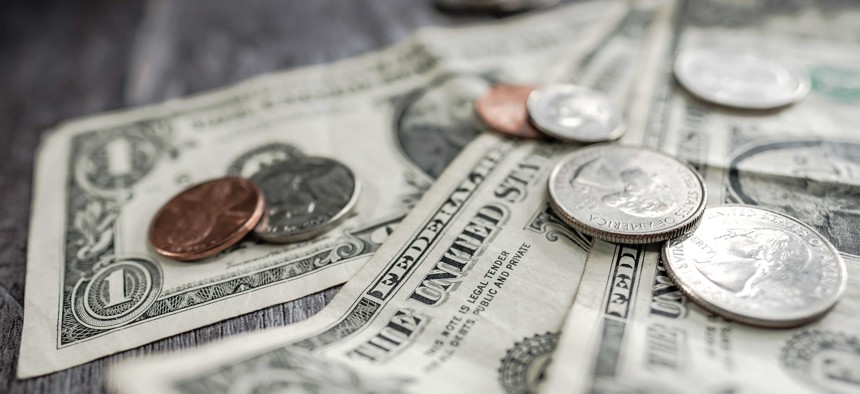These States Collect the Highest Sales Taxes Per Person

Shutterstock
Forty-five states and the District of Columbia collect state sales taxes, while local sales taxes exist in 38 states, according to the Tax Foundation.
The gap between how much people pay in state sales tax can be stark, with an analysis showing that residents of Hawaii and Washington state per person pay much more than those in Virginia and Colorado.
The conservative-leaning Tax Foundation took a look at the sales tax figures across the country, finding the highest collections, when broken down by person, were from Hawaii ($2,269), Washington, D.C. ($2,045), Washington state ($1,959), Nevada ($1,586), South Dakota ($1,225) and Florida ($1,208).
People paid the lowest amount in Virginia ($469), Colorado ($531), Alabama ($545), Georgia ($549) and Missouri ($590).

Policy analyst Katherine Loughead noted that these numbers in part reflect the broadness of the tax base for states, with Hawaii taxing not just items purchased at a store or online, but also a good deal of services. Loughead wrote that expanding what is taxed can give states the ability to reduce tax rates, although she criticized Hawaii for taxing too many services, including “business-to-business transactions.”
However, in general, people for decades now have been buying more services and fewer actual goods, she wrote.
“Most states will find that broadening their sales tax base to include more final consumer goods and services will create newfound flexibility to reduce tax rates. Additionally, an appropriately-broad sales tax base improves neutrality by moving toward a system that taxes all final consumer goods and services evenly, and it makes tax administration simpler while generating a more stable stream of revenue.”
This is a point that has been made by those on both sides of the tax ideological divide. The liberal-leaning Center on Budget and Policy Priorities, for example, has advocated for states with sales taxes to broaden them to more services, which can be everything from dry cleaning to yard maintenance. This makes the taxes fairer to all residents and creates a more reliable revenue stream for government, proponents argue.
The Tax Foundation’s per capita state sales tax figures don’t reflect which states have the highest rates, as local sales taxes aren’t figured into these calculations.

For example, while Louisiana collected $900 per person in state sales tax in 2017, coming in at number 28 in the group’s rankings, the state has the second highest combined sales tax rate in the country when local taxes are figured in. The state has one of the highest average local sales tax rates, which critics have bemoaned as regressive because taxes on purchases hurts poor people disproportionately.
In all, 45 states and the District of Columbia collect state sales taxes, while local sales taxes exist in 38 states, according to a January 2019 Tax Foundation report.
Laura Maggi is Managing Editor at Route Fifty and is based in Washington, D.C.
NEXT STORY: Appeal to Trump on SALT Cap Appears to Get Cool Reception






